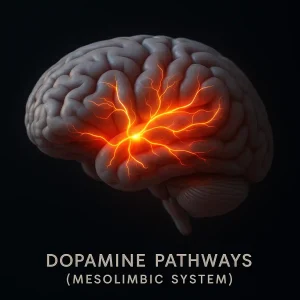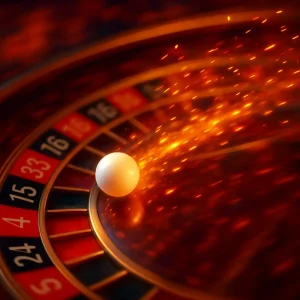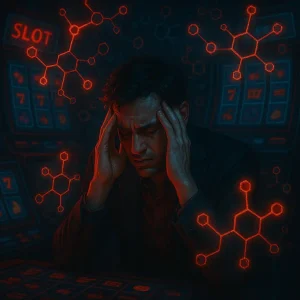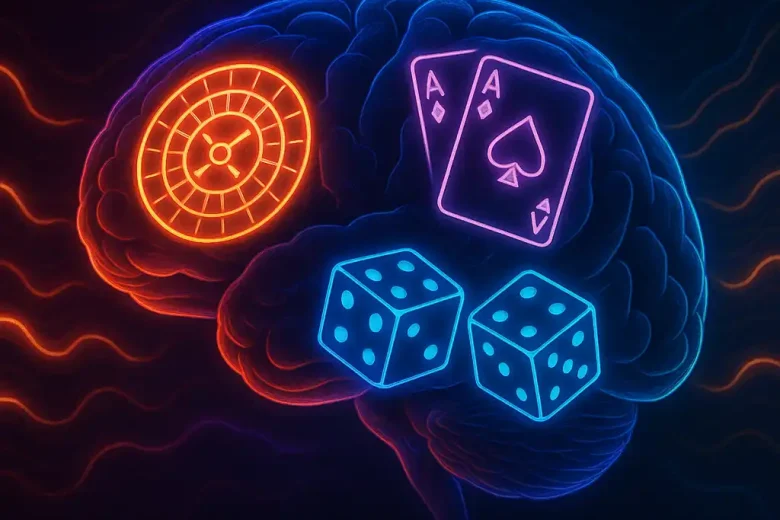Introduction
Gambling has always fascinated people — not only for the possibility of winning money but also for the emotional rush that comes with it.
Platforms like Spinanga Casino perfectly capture this thrill, combining fast-paced gameplay with the emotional highs that make players return for more.
The excitement before a result, the surge of joy after a win, and even the frustration after a loss — all these emotions make gambling a highly stimulating experience.
But what exactly causes this emotional rollercoaster? Why do players feel such intense highs and lows during the game? The answer lies in the way our brain’s reward system works. Understanding these mechanisms can help players enjoy gambling responsibly, stay in control, and avoid being driven by emotions.
1. The Brain’s Reward System
 Our brain is designed to seek pleasure and avoid pain. Whenever we do something that the brain perceives as rewarding — eating delicious food, achieving a goal, or receiving praise — it releases dopamine, a neurotransmitter responsible for feelings of pleasure and motivation.
Our brain is designed to seek pleasure and avoid pain. Whenever we do something that the brain perceives as rewarding — eating delicious food, achieving a goal, or receiving praise — it releases dopamine, a neurotransmitter responsible for feelings of pleasure and motivation.
In gambling, every bet and every spin trigger this same system. The moment you place a bet, your brain anticipates a possible reward. This anticipation releases dopamine even before you know the outcome.
When you win, the dopamine surge becomes even stronger, reinforcing the behavior. The brain learns: “This feels good — do it again.” This is how the reward loop begins.
 2. The Power of Uncertainty
2. The Power of Uncertainty
One of the strongest emotional triggers in gambling is uncertainty. Our brains are wired to react more intensely to unpredictable rewards than to predictable ones.
In gambling, the result is never guaranteed. Each roll, spin, or card draw carries the possibility of winning — but also of losing. This uncertainty keeps the dopamine system active, maintaining a constant sense of tension and anticipation.
Interestingly, even when players almost win — the so-called near-miss effect — their brains react as if they actually did win. That “so close” moment activates the same pleasure centers and encourages them to keep playing. This is why near-misses can be more motivating than clear losses.
3. Emotional Highs: What They Feel Like
 When dopamine and adrenaline flood the body, the player experiences a state of emotional excitement — fast heartbeat, focused attention, heightened energy, and the sense that something big is about to happen.
When dopamine and adrenaline flood the body, the player experiences a state of emotional excitement — fast heartbeat, focused attention, heightened energy, and the sense that something big is about to happen.
This emotional high can be thrilling. It creates a momentary escape from everyday life and brings a sense of euphoria. For many players, it’s not just the win itself that matters — it’s the feeling of possibility, of being “in the game.”
But because this high is temporary, players often want to experience it again. That’s how the cycle continues: the brain starts to associate gambling not only with money but with that emotional boost.
4. When the High Becomes a Trap
 The same brain mechanisms that make gambling exciting can also lead to loss of control. Over time, the reward system becomes less sensitive — the same amount of dopamine no longer produces the same level of excitement.
The same brain mechanisms that make gambling exciting can also lead to loss of control. Over time, the reward system becomes less sensitive — the same amount of dopamine no longer produces the same level of excitement.
This is known as tolerance. To feel the same thrill, players might increase their bet size or play more often. Eventually, the focus shifts from entertainment to chasing the emotional high.
At the same time, areas of the brain responsible for decision-making and self-control (especially the prefrontal cortex) may become less active under emotional pressure. That’s why even experienced players can make impulsive decisions when they are “in the heat of the moment.”
The combination of anticipation, near-misses, and emotional arousal creates a perfect storm where rational thinking often takes a back seat.
5. Emotional Chemistry: The Triple Mix
Three key hormones play the main role in gambling emotions:
-
Dopamine — the “pleasure molecule,” released in anticipation and after wins.
-
Adrenaline — responsible for excitement, fast heartbeat, and alertness during play.
-
Cortisol — the stress hormone, which rises after losses or during tense moments.
This biochemical mix creates powerful highs and lows. When dopamine and adrenaline dominate, the player feels unstoppable. When cortisol takes over after a loss, frustration and irritation can push them to continue playing — trying to “win back” or simply to relieve tension.
Understanding this inner chemistry is the first step toward emotional control.
6. How to Stay Aware and in Control
Emotional highs in gambling are natural — but they can be managed. Here are practical ways to keep control over your emotions and maintain a healthy relationship with the game:
1. Recognize the emotional pattern.
Before each session, remind yourself that the thrill you feel is a natural reaction of your brain — not a signal to bet more.
2. Set limits before you start.
Decide in advance how much money and time you are willing to spend. Stick to those limits no matter how the game goes.
3. Slow down the pace.
Fast, automatic play strengthens the emotional loop. Slower play gives your brain time to reset and think clearly.
4. Watch your physical reactions.
If you feel tension, sweating, or fast breathing — pause. These are signs that emotions are taking over.
5. Take breaks and cool down.
Short breaks every 15–20 minutes help reduce overstimulation and bring emotions back to normal.
6. Remember the purpose.
Gambling should be entertainment, not a way to feel better or escape stress. If you notice that you play mainly for emotional relief, it’s time to step back.
7. When the High Doesn’t Feel Fun Anymore
If the emotional rush becomes something you constantly seek — or if you feel anxious, irritated, or empty without gambling — it may be a sign that the brain’s reward system has become overstimulated.
At this stage, it’s important to:
-
Take a longer break from gambling.
-
Redirect your energy to other activities that bring satisfaction — sports, social events, creative hobbies.
-
Talk to professionals or use support services if the urge to play feels hard to control.
Conclusion
The emotional highs of gambling are not a mystery — they are part of how the human brain works. The thrill, excitement, and anticipation all come from the brain’s reward system, which releases powerful chemicals every time there’s a chance of a win.
These emotions can make gambling exciting and enjoyable — but they can also blur judgment and lead to impulsive behavior. Awareness is the key. When you understand how your brain reacts, you can separate the thrill from the risk and enjoy the game responsibly.
Emotions will always be a part of gambling — but it’s up to you whether they control the game or you control them.
